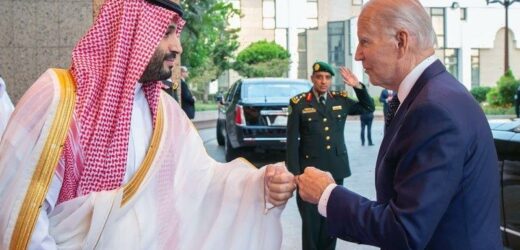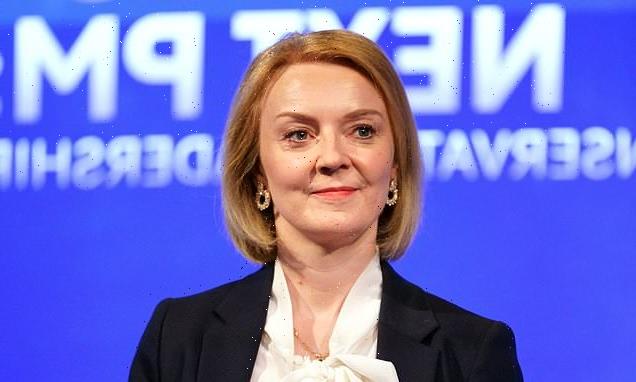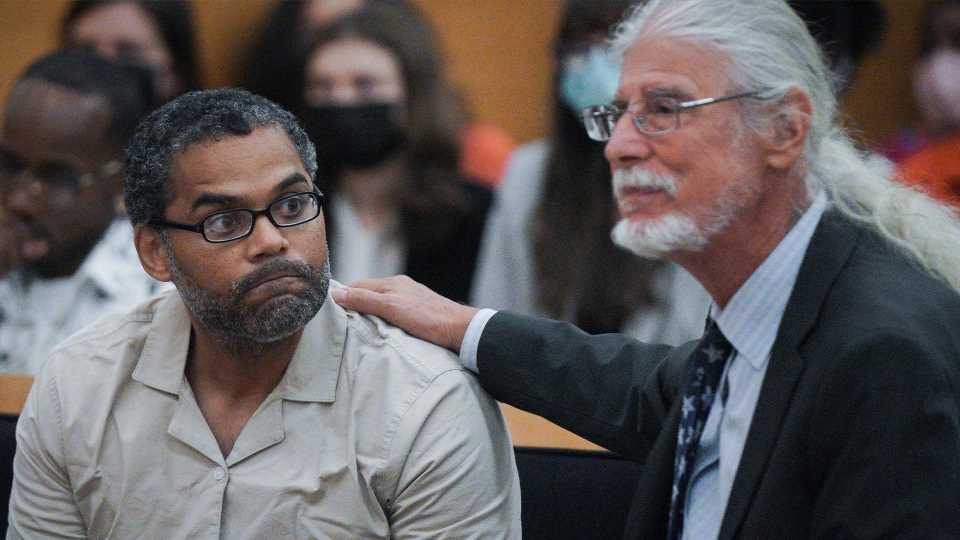Jeddah: As US President Joe Biden told the tale, it sounded pretty dramatic.
After meeting with Crown Prince Mohammed bin Salman, Saudi Arabia’s de facto ruler, on Friday for the first time since taking office, Biden insisted that he had pointedly blamed him for the murder of columnist Jamal Khashoggi.
Saudi Crown Prince Mohammed bin Salman, right, greets US President Joe Biden with a fist bump in Jeddah.Credit:AP
“He basically said that he was not personally responsible for it,” Biden recounted to reporters. “I indicated that I thought he was.”
The only hitch? That is not the way it happened, according to Saudi officials. Adel al-Jubeir, the Saudi minister of state for foreign affairs, who was present for the encounter, told reporters that he had not heard Biden blame the crown prince.
The White House on Saturday did not back down. “The president was very clear about the conversation, and we stand by his account,” said John Kirby, coordinator for strategic communications at the National Security Council.
Both sides had an interest in spinning the closed-door meeting. Biden has been denounced by rights groups, media organisations and politicians in both parties for meeting with the crown prince, who the CIA said ordered the 2018 operation that killed Khashoggi, a US resident and columnist for The Washington Post. By promoting how tough he was behind closed doors, Biden clearly hoped to defuse some of the criticism for abandoning his campaign promise to make Saudi Arabia a “pariah.”
For their part, the Saudis were eager to present the meeting as a return to business as usual between the leaders of two longtime allies and had every hope of minimising the lasting import of the Khashoggi case. Al-Jubeir confirmed to reporters that Biden had raised the matter but characterised it in less confrontational terms. The last thing the Saudis wanted was the image of a president lecturing their young leader.
“The president was very clear about the conversation, and we stand by his account,” said John Kirby, coordinator for strategic communications at the National Security Council.
Indeed, both sides were acutely attuned to the choreography of the encounter. American news photographers travelling in the White House motorcade were given no opportunity to get in place to capture the image of the president greeting the crown prince upon his arrival at a palace here, a picture Biden’s aides had dreaded. The Saudi government, for its part, made sure its official photographers were everywhere and snapped myriad shots of the two together, which were promptly posted online.
Biden is, by nature, a storyteller with a penchant for embellishment. He has often told the story of meeting Russian President Vladimir Putin in 2011 as vice president and telling him, “I’m looking into your eyes, and I don’t think you have a soul.” Others present at the time had no memory of that specific exchange.
Biden has similarly described an unvarnished confrontation in 1993 with Slobodan Milosevic, the Serbian nationalist leader who unleashed an ethnic war in the Balkans. “I think you’re a damn war criminal and you should be tried as one,” Biden, then a senator, related having told Milosevic, according to a 2007 memoir, “Promises to Keep.” Some other people in the room later said they did not recall that line.
Biden likes presenting himself as standing up to dictators and crooked figures. Another favourite story stemmed from a meeting with President Hamid Karzai of Afghanistan in 2008, when the Afghan leader denied that his government was awash in corruption. Biden said he grew so irritated that he threw down his napkin, declared, “This dinner is over,” and stormed out.
Often, others in the room for such sessions say that some version of what Biden has described did take place, only not with quite as much camera-ready theatricality.
Biden’s casual adherence to precision and false statements have gotten him in trouble throughout his political career. He withdrew from his first presidential campaign in 1987 after being caught relating the story of a British politician as if it were his own. He has exaggerated his academic record, overstated his involvement in 1960s civil rights protests and falsely claimed to have been arrested in apartheid-era South Africa. He also recalled “spending time at” and “going to” the Tree of Life synagogue in Pittsburgh after a 2018 shooting massacre, when in fact he made a phone call, not an in-person visit.
In offering their softer version of what transpired between Biden and Crown Prince Mohammed on Friday, the Saudis were not seeking to call out the president for misrepresenting it. In fact, they seemed anxious to avoid any perception of differences or tension. Princess Reema bint Bandar al-Saud, the Saudi ambassador to the United States, told reporters that when it came to the Khashoggi case, the conversation “was candid.”
The question was: How candid?
This article originally appeared in The New York Times.
Most Viewed in World
From our partners
Source: Read Full Article



